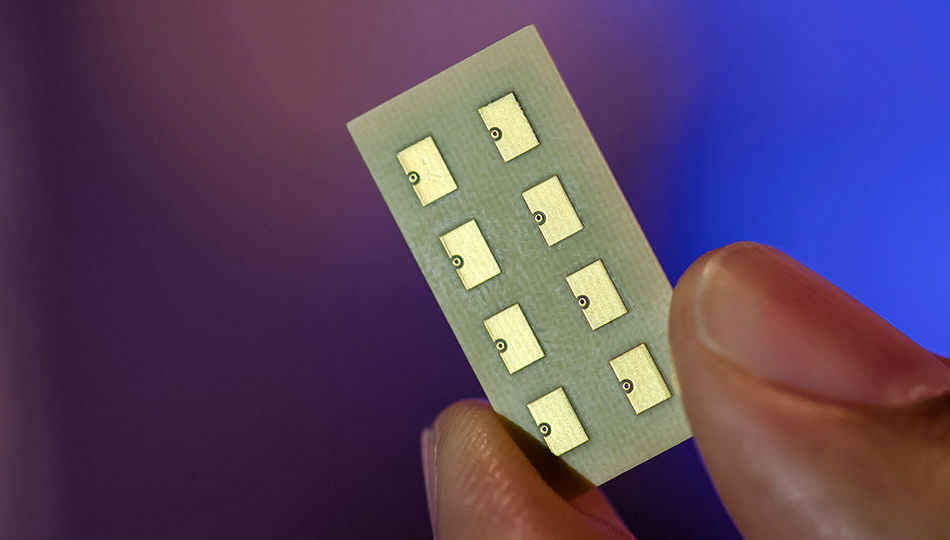7nm based Qualcomm Snapdragon 855 could be made by Samsung
The Qualcomm Snapdragon 855 will be built on the 7nm process and it seems that Samsung might take over from TSMC to be the manufacturer.

It has been an exciting year for smartphone processors, and while we still have to get the full portfolio of Snapdragon 845 devices, confirmed details about the Qualcomm Snapdragon 855 have already started surfacing. The next generation of Qualcomm's mobile flagship processor will be based on the 7nm process and will offer a host of improvements for smartphone users, but more than that, it marks a major technological breakthrough. According to a report by Seol Economy, Samsung has completed the work on its 7nm fabrication process a whole six months ahead of schedule and the team has moved on to working on the 5nm fabrication process. The report further says that Samsung has already acquired Qualcomm as a client for their 5nm chips.
 Survey
SurveyAs of now, the Qualcomm Snapdragon 855 had been commissioned to TSMC, who had perfected their 7nm manufacturing process ahead of Samsung. As of December 2017, Nikkei Asian Review had reported that TSMC will be manufacturing Qualcomm’s next-generation processor, the Snapdragon 855 along with the requisite modem chips. The report said that at the time, Samsung’s 7nm process was not going to be production ready by late 2018 but Qualcomm could transfer orders back to Samsung if the facility was operational by 2019. Today’s report by Seol Economy confirms that Samsung’s facilities are ready 6 months ahead of schedule, and will be manufacturing the 5G modem chips for Qualcomm using their 7nm EUV fabrication process. The Seol Economy report also states that Samsung will now be manufacturing the Snapdragon 855 for Qualcomm, as it on track with 10 production lines to manufacture the Snapdragon 855 chips by the end of the year. Now it remains to be seen who will finally be making the Snapdragon 855 for Qualcomm, which will depend on both TSMC and Samsung’s production capabilities. Seol Economy does report that as Samsung engineers move onto developing the 5nm manufacturing process, they have already acquired Qualcomm as the first client, meaning the processors to come after the Snapdragon 855 could be even smaller, at 5nm, and made by Samsung.
However, it is important to note that the 7nm manufacturing process being employed by TSMC and Samsung are very different. TSMC’s 7nm chips will be made using the existing DUV (Deep Ultraviolet) lithography process, which is the same process used to make 14nm and 10nm chips. Samsung’s 7nm process is achieved by the use of a new process called Extreme Ultraviolet (EUV) lithography, which is a far more efficient way of making smaller chips as it reduces the number of steps involved significantly. While the two processes have no immediate advantage or disadvantage for end-user, the EUV method eliminated a large number of steps from the manufacturing process, which could lead to reduced manufacturing costs.
Samsung notes that its 7nm process can produce dies about 40% smaller than its 10nm FinFET process, achieving either a 10% performance boost or up to 35% more power efficiency at the same level of performance. With the right kind of tuning, users could expect improvement in both performance and battery life. The smaller processor also means that smartphone manufacturers have the ability to make devices with either similar dimensions or larger batteries without compromising on power or battery life.
The 7nm process is a major breakthrough in semiconductor manufacturing. As processors have continued to become smaller and smaller, the 10nm die size is when manufacturers had started to hit the limits of Moore’s Law. Making chips smaller required a huge overhaul of how patterns are etched onto the silicon wafer. GlobalFoundaries, TSMC, Samsung and even Intel have been working on perfecting the Extreme Ultraviolent (EUV) Lithography process, which comes with its own set of engineering challenges. However, GlobalFoundaries, TSMC and now Samsung seem to have figured out how to make the process work and TSMC and Samsung are both production ready.
Qualcomm Snapdragon 855 chips won't make their debut before 2019 but will be based on the 7nm process. While TSMC was supposed to make the Snapdragon 855 for Qualcomm, with Samsung’s technology also ready, it remains to be seen just how much a part the Korean company will play in Qualcomm’s next set of chips, given their long-standing relationship. As of May 5th, Samsung has begun preparations for the production of the 7nm foundry at a facility which is designated to be dedicated to the EUV-based manufacturing process.
Swapnil Mathur
Swapnil was Digit's resident camera nerd, (un)official product photographer and the Reviews Editor. Swapnil has moved-on to newer challenges. For any communication related to his stories, please mail us using the email id given here. View Full Profile